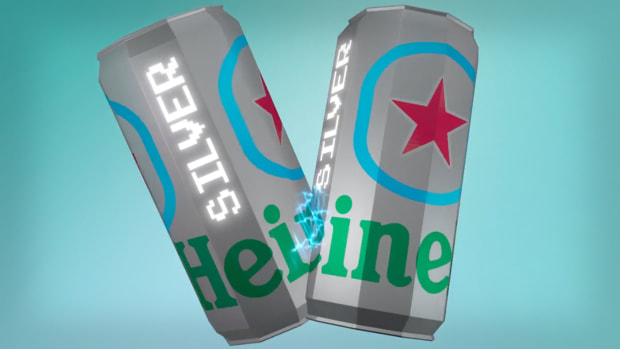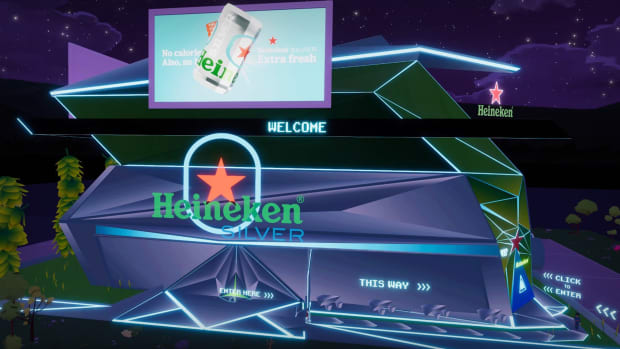If there's any form of social gathering that none of us asked for, it's the pandemic virtual happy hour, where we all stare at a grid of mildly blurry faces on our laptops, laugh awkwardly when people talk with their mics off, and pretend we're having a good time.
Of course, it was a situation no one was prepared for in the first place, so it was better than no happy hour at all, right -- though there was nothing remotely happy about dousing our Covid anxiety with spirits and pretending the world wasn't figuratively on fire right outside our windows.
Now, even as vaccinations have made it possible to enjoy a drink with friends on a restaurant patio, many businesses are still hellbent on the idea of making their presence known in the virtual world. And one popular beer brand is introducing "virtual beer" in its own metaverse, which is an innovation none of us asked for.

Heineken
What is a Virtual Beer?
It's exactly what it sounds like: A beer that doesn't actually exist.
Heineken (HEINY) wants you to try it anyway, though, which you can do only in its exclusive metaverse, Decentraland, at its virtual brewery. And if that sounds even less fun than Zoom happy hours, wait -- there's more.
"Our new virtual beer, Heineken Silver is an ironic joke," said Bram Westenbrink, global head of Heineken.
"It is a self-aware idea that pokes fun at us and many other brands that are jumping into the metaverse with products that are best enjoyed in the real world. For now, you can't taste pixels and bytes. So, we want to make a joke about that and remind everyone that nothing beats the taste of a refreshing beer, including our new virtual Heineken Silver, in the real world."
So what you're saying, Bram, is we should laugh at your virtual beer and then go buy a real one. Which might work. Maybe.

Heineken
Not All Things Belong in the Metaverse
Big companies are trying to find ways to move into the metaverse more often than ever, especially since certain experts have named it a financial gold mine.
And while there's nothing wrong with the idea of building virtual spaces for people to explore, those spaces have to offer something genuinely fun for the users, not just a pale shadow of a thing that's much better in real life.
Heineken is clearly trying to innovate to recover lost revenue. And while its earnings have gone back up since its 2020 dip and it was recently named a top 5 European stock, this particular move feels a bit forced and unnecessary.
Before the metaverse had a name, it existed in videogame spaces as far back as 2003, thanks to games like "Second Life." One of the key things that keep people coming back to the game this day -- more than 67 million of them, to be exact -- is the ability to explore an interesting world that offers options their real-life circumstances did not.
And while that can be highly enjoyable if you're building an Italian villa so you can gaze out your kitchen window at the Mediterranean Sea, there's no way to allow a user to experience the sensation of taste in the metaverse. So while Heineken is trying its best to make a mark in the space, being handed a beer you can't drink seems more frustrating than innovative in this case.
So yes, the metaverse could be an exciting space, and many brands could make great things in it. But they should take notes from successful early metaverse archetypes like "Second Life" before they hurl their products into that space, taking time to consider if they fit to begin with.







